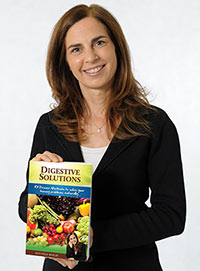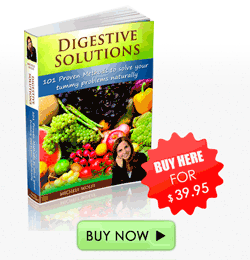By Michèle Wolff B.H.Sc Naturopathy, Dip. Colonics and Author of ‘Digestive Solutions’
We often joke about being addicted to coffee, but food addiction is not a joke and may be the reason for some common food cravings! While pregnancy is recognised as being responsible for some pretty unusual cravings, the reality is that food cravings are generally caused by addiction, allergy, dietary imbalance, or emotional cravings, as seen in Bridget Jones’ Diary and many other chick flicks!
If we learn to understand our cravings, with a few simple rules we can kick them to the curb.
Addiction: Caffeine and sugar are probably the most addictive foods in our modern diets. Our sugar intake has increased 15 times since 1900, it’s gone from 5kg per person to year to a whopping 75kg that the average person is eating in a year. And we all know – either from personal experience or watching friends or colleagues – that missing a morning coffee can make you irritable, give you a headache and cause digestive upset. While having a cuppa can temporarily relieve the symptoms, all you’re doing is continuing the cycle of addiction. The symptoms of withdrawing from addictive foods like sugar and caffeine are short-lived, so within a short period you’ll feel healthier, more clear-headed and will likely have more natural energy.
Allergy: Sometimes we want what we know is bad for us, or doesn’t agree with our bodies – when this is food, it can cause physical symptoms and sometimes mood changes. Avoiding foods until the gut has healed may mean you can tolerate these foods again – but it’s best to aim for small portions to avoid over-loading your system again.
Dietary imbalance: In a world where our diets tend to be high in sugary, processed foods, this imbalance can cause us to crave what our bodies think they are missing – which isn’t always healthy! A fungal infection may also lead to sugar cravings, as the bad bacteria in the gut love to feed off sugar. Cravings from an alkaline / acidic imbalance can be strong – although we want to maintain higher intake of alkaline foods, such as salads and vegetables, instead of acidic foods, if we eat too many alkaline foods, and not enough proteins or whole grains, our bodies will crave sugary acidic foods to redress the balance.
Emotional cravings: There is a nugget of truth in the cliché that a tub of ice-cream cures a broken heart – often our emotional state can trigger desire for certain foods that we associate with comfort. This emotional response isn’t just related to comfort eating; if we’ve denied ourselves certain foods, we can become fixated on them and end up bingeing.
To beat those cravings for:
- Sugar – eat more whole grains, and magnesium rich foods, especially if your sugar cravings are greater before your period. Buckwheat and brown rice are high in magnesium
- Coffee – drink dandelion or chicory to replace the flavour of coffee, or green tea to reduce caffeine intake. To help beat coffee cravings, eat less meat and sugar, and more salad vegetables.
- Alcohol – eating healthy carbohydrates and bitter greens, which can help reduce cravings for alcohol. Find some tasty, non-alcoholic drinks you can use as a fail-safe if you’re out with friends, and keep natural flavourings you can add to plain or carbonated water at home – mint, rosemary and other herbs can work well, or fruit pieces are especially refreshing in summer. Adding lemon or lime to your water also adds flavour as well as alkaline content, to help your digestion – just remember to rinse your mouth with plain water afterwards so the enamel on your teeth isn’t affected.
Getting to know your triggers for emotional over-eating means you can put alternative strategies in place – so instead of heading for the fridge, freezer or pantry, you can go for a walk, read a good book or pick up the phone to a girlfriend instead!






